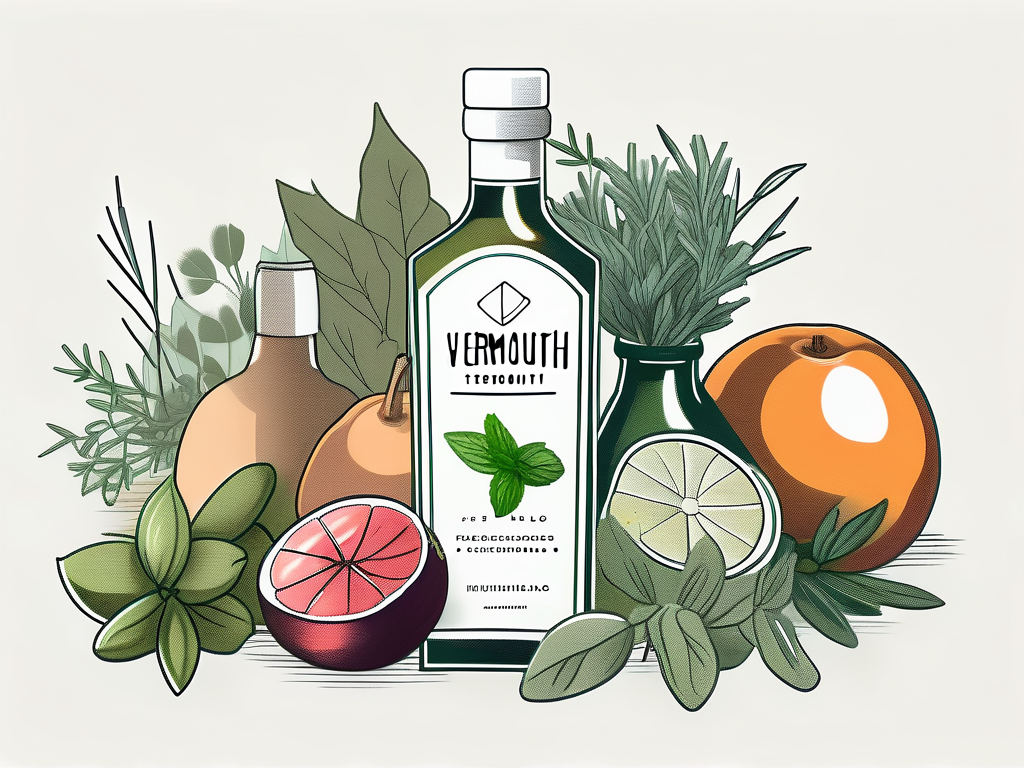
Vermouth, a fortified wine flavored with various botanicals, is a staple in many classic cocktails and cooking recipes. Its unique taste can elevate a drink or a dish, but what happens when you don’t have it on hand? Or perhaps you’re looking for a healthier or non-alcoholic alternative? This comprehensive guide will explore the world of vermouth, its common uses, and the best substitutes to use in your cocktails and cooking.
What Is Vermouth?
Vermouth is a type of fortified wine, which means it has been strengthened with a distilled spirit, usually brandy. It originated in Italy in the late 18th century and has since become a staple in many bars and kitchens worldwide. Vermouth is known for its unique flavor profile, which comes from the various botanicals used during its production. These can include roots, barks, flowers, herbs, and spices, which are each carefully selected to create a complex and balanced flavor.
There are two main types of vermouth: sweet and dry. Sweet vermouth, also known as red or Italian vermouth, is rich and sweet with a strong herbal flavor. It’s often used in cocktails like the Manhattan and Negroni. Dry vermouth, also known as white or French vermouth, is lighter and more bitter, making it the perfect addition to a Martini.
Is Non-Alcoholic Vermouth a Thing?
Yes, non-alcoholic vermouth is indeed a thing. With the rise of non-alcoholic spirits and beverages in recent years, several companies have started producing non-alcoholic versions of vermouth. These products aim to replicate the complex flavors of traditional vermouth without the alcohol, making them a great option for those who prefer to avoid alcohol but still enjoy a sophisticated drink.
Non-alcoholic vermouth can be used in the same way as regular vermouth, both in cocktails and in cooking. While the taste may not be exactly the same, these products offer a close approximation and can be a good alternative for those looking for a non-alcoholic option.
Health Alternatives to Vermouth
While vermouth, especially in moderation, is not necessarily unhealthy, some people may be looking for alternatives with specific health benefits. For instance, red wine is often touted for its heart health benefits due to its high content of antioxidants like resveratrol.

Another option is kombucha, a fermented tea drink that has gained popularity for its probiotic benefits. Kombucha has a tangy, slightly sweet flavor that can make it a good substitute for vermouth in some cocktails. However, it’s worth noting that kombucha does contain a small amount of alcohol due to the fermentation process.
Common Cocktails that Use Vermouth
Vermouth is a key ingredient in many classic cocktails. The Manhattan, for instance, combines sweet vermouth with whiskey and bitters for a smooth, rich drink. The Negroni, another classic, uses sweet vermouth along with gin and Campari to create a bitter, complex cocktail.
Dry vermouth, on the other hand, is often used in Martinis, mixed with gin and garnished with a lemon twist or an olive. It’s also used in the French 75, a refreshing cocktail made with gin, champagne, lemon juice, and a dash of sugar.
Vermouth Substitutes for Cooking
Vermouth is often used in cooking, particularly in sauces, stews, and marinades, to add depth and complexity to the flavors. If you don’t have vermouth on hand, there are several alternatives you can use.
White wine is a common substitute for dry vermouth, while red wine can be used in place of sweet vermouth. Both will add a similar depth of flavor, although they may not have the same botanical notes as vermouth.
For a non-alcoholic substitute, you can use white grape juice or apple juice for dry vermouth, and red grape juice for sweet vermouth. Adding a splash of lemon or lime juice can help replicate the acidity of vermouth.
Easy Cocktail Substitutes for Vermouth
If you’re mixing cocktails and find yourself without vermouth, don’t worry – there are several substitutes you can use. For sweet vermouth, try using a fortified wine like port or sherry. These have a similar richness and depth of flavor, although they may be sweeter than vermouth.
For dry vermouth, a good substitute is dry white wine, which has a similar acidity and lightness. You could also use a non-alcoholic alternative like white grape juice, although this will be sweeter and less complex in flavor.
Remember, the key to a good cocktail is balance, so you may need to adjust the other ingredients in your cocktail to compensate for the different flavors of your substitute.
In conclusion, while vermouth is a unique ingredient with a distinctive flavor, there are plenty of alternatives available for both cocktails and cooking. Whether you’re looking for a non-alcoholic option, a health alternative, or simply don’t have any vermouth on hand, you can still create delicious and complex drinks and dishes with these substitutes.